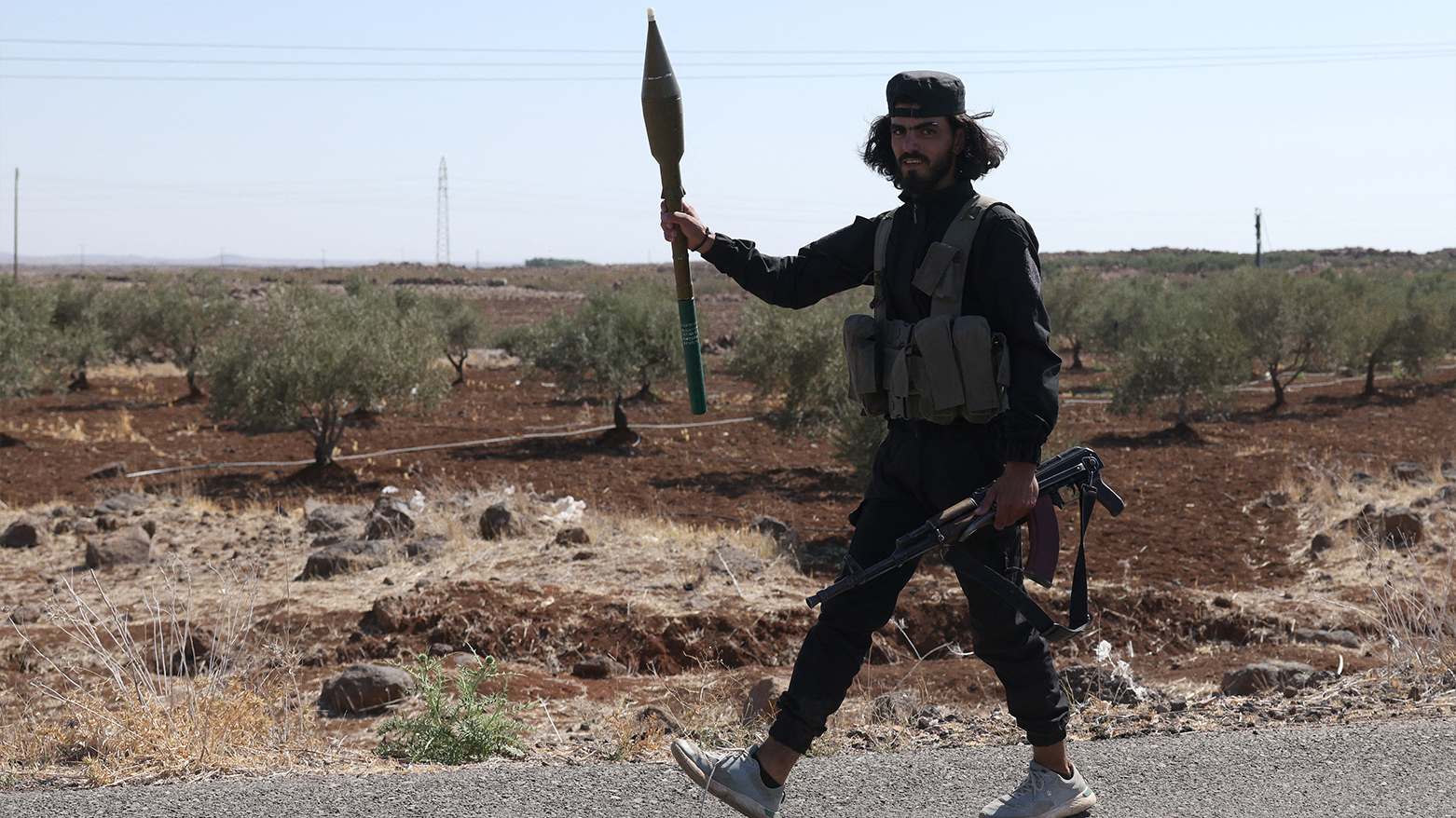Fierce Clashes in Suwayda Leave 89 Dead: SOHR
At least 89 killed and hundreds injured in Syria’s Suwayda as clashes erupt between Druze locals, Bedouin tribes, and Damascus-affiliated forces. SOHR warns of a looming massacre, accusing government forces of siding with tribes, risking wider sectarian conflict.

By Kamaran Aziz
ERBIL (Kurdistan24) – At least 89 people have been killed and hundreds wounded in violent clashes erupting in Syria’s Suwayda province, with the Syrian Observatory for Human Rights (SOHR) warning of a "risk of a new massacre" as government security forces are reportedly siding with Bedouin tribes against the local Druze population.
Rami Abdulrahman, the director of the Syrian Observatory for Human Rights, told Kurdistan24 on Monday that the unrest has resulted in "more than 300 killed and wounded, the majority of whom are civilians," with an additional "approximately 100 killed and wounded among the security forces."
The Observatory stated that "security forces are siding with the tribes against the Druze," and that "the fighting is still ongoing." While previous tensions existed, they were not on this scale and have now escalated further.
The armed clashes, which broke out Sunday morning between gunmen from Bedouin tribes, local Druze gunmen, and security forces affiliated with Damascus, continued for a second consecutive day. The battles are concentrated on the axis of Kanaker village and in the towns of al-Tha'lah and al-Mazra'a in the western countryside of Suwayda province.
The most violent clashes broke out Monday morning following an armed attack by Bedouin tribesmen, with participation from elements of the Ministries of Defense and Interior, launched from the eastern countryside of Daraa.
According to the SOHR, the death toll from the fighting since Sunday has reached 89. This figure includes 50 residents of Suwayda (two of whom were children and two were women), 18 Bedouins from Suwayda, 14 personnel from the Ministry of Defense, and 7 unidentified individuals in military uniform. Dozens more have been wounded, including children, with some in critical condition.
In response, the Syrian Ministry of Defense has sent large military reinforcements to Suwayda "away from the media," instructing units in Homs and Damascus to head to the province. The move is described as similar to a deployment to the Syrian coast last March. The reinforcements include various types of weapons and dozens of personnel to support security checkpoints that were attacked.
The escalation began after an incident of mutual detentions. A young man from Suwayda was reportedly assaulted, beaten, and robbed by a group of tribesmen, leaving him in critical condition. In response, residents of Suwayda detained members of the tribes. This prompted the tribes to set up a checkpoint, detain local armed men, and block a main road.
During the clashes, an Israeli warplane was observed flying in the region's airspace and releasing flares. The sound of explosions was also heard, but it remains unconfirmed whether they resulted from an Israeli strike or from heavy weapons used in the ground fighting.
The ongoing violence has overwhelmed medical facilities. Medical teams are working at full capacity amid severe shortages of medical supplies. The National Hospital in Suwayda has received about 200 injured individuals since Sunday morning.
The most alarming aspect of this escalation is the Syrian Observatory for Human Rights' report that Damascus-affiliated security forces are not acting as a neutral party but are actively siding with Bedouin tribes against the Druze minority.
This alleged alignment transforms a local, inter-communal dispute into a potential state-backed campaign, threatening to ignite a wider sectarian conflict in southern Syria. It suggests a strategic decision by the Syrian government to either exploit existing tensions to reassert control over a restive region or an inability to manage its own forces, which are now acting as belligerents.
The heavy deployment of military reinforcements "away from the media" indicates a deliberate and significant government operation is underway.
The severe humanitarian fallout, with hundreds of casualties overwhelming a depleted medical system, highlights the immediate human cost. This development shatters Suwayda's fragile stability and risks plunging the south of Syria into a brutal cycle of violence that could have profound implications for the country's complex security landscape.